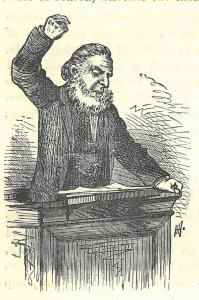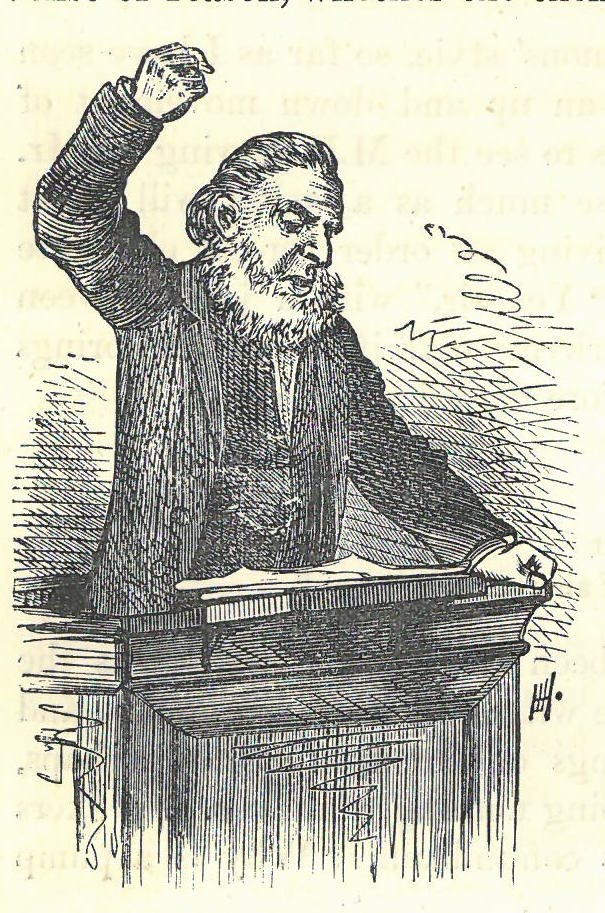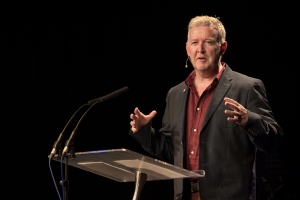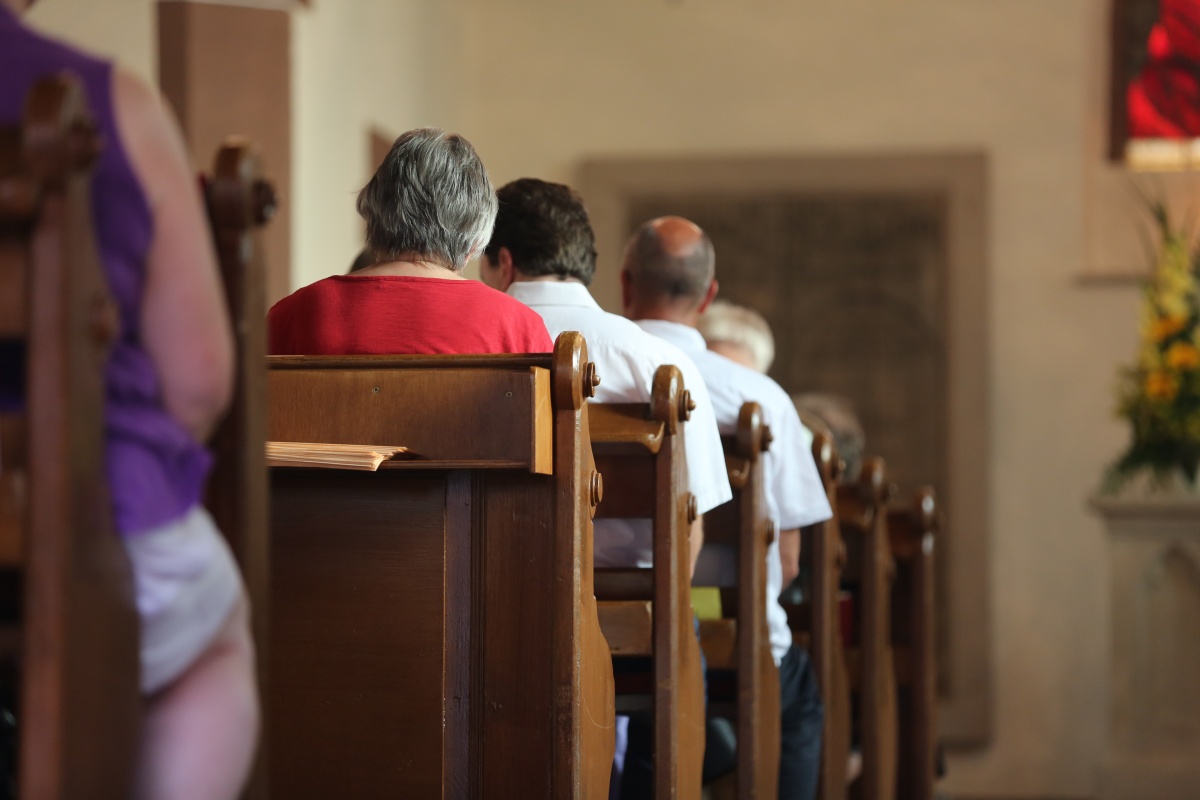
Thumping the pulpit.
One of the things that 19th Century Baptist preacher Charles Spurgeon, idolized by some, thought was not a great idea.



When I first moved to Nova Scotia in the Atlantic Provinces, I was immediately struck by the difference in the architecture. And oh yes, the white, often small, sometimes very small, wooden Churches, that dotted the rural landscape, like the spots on the coat of my daughters greyhound.
Not merely the presence but the preponderance of these buildings, many now poorly attended or closed, speak of another time.
Yesterday, I listened to a radio program that was discussing the re-purposing of these buildings in the Maritimes for homes, art and craft centres, pubs, and wineries. Perhaps I should lament this with some sort of historical or theological nostalgia. Instead, I find myself marvelling at the creativity of the “conversion” of some of the buildings.
Listening to a radio program yesterday about this re-purposing, one of the commentators used the language of “de-consecrated” buildings and another if I heard them right, “de-segregated.” Oh all these words, re-purposed, converted, de-consecrated, and if heard rightly de-segregated invite such reflection.
Yet I found myself with another question, “Where did all the words go?”
The words of prayer, praise and preaching. And when did it dawn on congregations that these words, sometimes sacred words, would be replaced by other words, not necessarily worse, but certainly different. This realization when it fell may in fact have caused them to hang on to their building if not their meetings longer than maybe they should. In hope of what? Better days?
I still spend many hours preparing sermons. Increasingly I take care with my words whether playful or profound, often settling for less words, but hopefully more purposeful and poignant, penetrating and persuasive words, delivered with as much passion and pathos as logos.
But where do they all go?
I guess where they always have…
“Listen! A farmer went out to sow his seed. 4 As he was scattering the seed, some fell along the path, and the birds came and ate it up. 5 Some fell on rocky places, where it did not have much soil. It sprang up quickly, because the soil was shallow. 6 But when the sun came up, the plants were scorched, and they withered because they had no root. 7 Other seed fell among thorns, which grew up and choked the plants, so that they did not bear grain. 8 Still other seed fell on good soil. It came up, grew and produced a crop, some multiplying thirty, some sixty, some a hundred times.”
I hope so…


Sermons are spoken in a context.
Many are spoken in the specific context of a worship service, with things (mainly though not always acts of worship) before and after.
Whether we like it or not, these other things are part of the event of communication which will either enhance or detract from the specific message of the sermon.
These acts frame it. Meaning takes place in such frames.
This is why preachers need to have a clarity and a connection with what else is going on or they can end up speaking against the wider ethos of the service rather than with it.
Clarity and connection includes paying attention to content.
A disjunction in content can be like a clashing cymbal. Oh boy can it clash!!! Boom.
For example, a sermon on how we should love everyone (seems to be a general favourite) followed or preceded by announcements about signing a petition against the rights of groups we do not like, grinds with screeching incongruity. More, it destroys the ethos of the service suggesting at best that what is being said is not clear and at worst is quite simply untrustworthy.
Clarity and connection also includes paying attention to congruity in terms of movement. People have gathered and people will leave, so where or how does the sermon and other parts fit into that movement.
For example, a sermon that finishes sending out to radical mission, which is then followed by the notices of the forthcoming “pot luck luncheon”, fizzles to flatness before the service is even over.
The context of the service and the sermons role and place in it, are very significant for the communication of the message.
You may have noticed that I once had a sermon about Jesus the lamb of God. It travelled well…most of the time.
On one occasion I was preaching in Oban Baptist Church. This involved an early morning journey from Glasgow to Oban through some beautiful, quiet (at that time on a Sunday morning) country roads. It was a stunning morning, the sun was shining and I was pushing it in a borrowed red Vauxhall Viva car.
Up ahead on the country roads I saw a sheep and a lamb. It was that time of year and unfenced roads.
Aw the nice.
Then the sheep crossed the road leaving the lamb behind at my side of the road.
Aw not so nice. I began to apply the brakes, the lamb decided to join its maw, crossed in front of me…kaboom.
Stopped the car, got out to check that it was in fact dead – which it was, and fortunately had ended up back off the road. Climbed in car a bit shaken and sad, poor wee thing.
Drove rest of the journey to find a police station, you had to report if you hit live stock. Most country police stations closed. Got to Oban, into police station. “I am here to report that I killed a lamb on the road up from Glasgow.” Wry response from young female police officer: “I presume you mean that you hit it with your car, not that you beat it to death with a stick!” Ho ho.
Off to Church, yes sermon that day…”Behold the Lamb of God…” Susanne in congregation could not look at me.
It is said that the introduction to a sermon, talk, presentation, carries a weight of importance greater than its length.
The science about this is for another day.
But my previous post of preaching “around” as a student, triggered memories of somewhat infamous sermon introductions which I thought were good ideas at the time.
Two in particular (that I will talk about) come to mind:
I opened a sermon on John 1:29 “Behold, the Lamb of God who takes away the sin of the world”, with the words…
“I wonder if you like lamb chops?”
I probably should not have not done this in sermon class…
I also opened a sermon on Exodus 20:8 “Remember the Sabbath day by keeping it Holy”, in one of our largest congregations with the words:
“Margaret Thatcher (a former British Prime Minister) says ‘Save our Sunday’. Save our Sunday for what? Bibles, books, and boredom?…No thanks.”
This and my evening sermon at that church got me reported to the College…and earned a visit to the Principals office. Several years later I would become a pastor in that Church!
Oh to be still as creative.
In both congregations in which I was a pastor my “contract” stated that in addition to holidays, I was allowed several Sundays (at least 4) to preach in other congregations.
The church, therefore budgeted to pay a “pulpit supply” for those days on which they were yet, really paying for me.
Perhaps they needed a break.
I can accept that.
I get bored with me.
Pretty quick.
One congregation I think felt a bit of kudos that “their pastor” got invited elsewhere.
One congregation saw it as sharing their resources.
I think that in addition the leadership in the latter congregation understood that it was also good for us (there were several ministers) and them, for to us preach elsewhere – we brought back a richer experience.
The flip side, other people got a chance to preach although to be sure I did not get to hear them…oh yes cassette tape” ministry did exist in the old days.
I wonder to what extent this preaching elsewhere is contracted and or encouraged?


Preaching may be many things:
Art and Craft
Gift and Calling
Responsibility and Job
It is certainly a skill and skill needs practice.
We all appreciate a good sermon better than a poor one. We prefer an experienced hairdresser and dentist to a trainee! Yet, those learning to preach need opportunities to preach. They need people on whom to try out their sermons.
By the time I went to my first church in Scotland, I had preached often. This was the result of a system of students being available, invited, and sent to Churches for pulpit supply.
You did not say no when you got the invitation (instruction with a phone number) from upstairs in Aytoun Road at the Scottish Baptist College. Instead of you went – train, bus, borrowed car.
In my years of studying at the Scottish Baptist College I preached in Churches all over Scotland: Bellshill, Dundee, Oban, Dennisoun, indeed as far as Fraserburgh (stunning hospitality and home baking in Fraserburgh), to name but a few.
There were repeated sermons (7 times I think with one sermon on John 1 – Jesus the Lamb of God) a few mishaps (called into Principals office on the Monday for a reprimand), a few very long Sunday afternoons in a persons home from the church waiting patiently for the Sunday evening service to come round, inadequate expenses to cover travel…
but overall an opportunity for gaining experience among congregations who welcomed you for what you were – a student learning your skill.
I appreciate all those who let me try out my stuff on them.
I think it was my first Church secretary David Cameron who said to me : “You are only as good as your last sermon.”
I guess that in Scotland this sort of statement is a sort of motivational talk!!!!
If he was right – I hope you had/have a good day.


The thing about multi-media learning is that more is not necessarily better and can in fact be counter-productive.
Neuroscience is constantly developing but here is where we seem to be on this one…
Simultaneously presenting the same material twice in “apparently” different ways may lead to “cognitive overload.”
While some information may go in with the eyes and some through ears some research suggests that words read and spoken are processed in the same part of the brain which may lead to “overload.”
Anyway, why ask people to read words with their eyes while listening with their ears when either the slides are out of synch with the words, or they can read the words faster than they can listen to you read.
It like asking them to do two different things at the same time rather than reinforcing one thing.
Ways to avoid such overload…well here is one…
Multi Media Learning (Mayer, summary). Source of quote above.
So if you are going to read the Scriptures and put the words on the screen, tell people to do one rather than the other?
Yes indeed, it was no better when the reader would read and others would “listen” while each was reading their own and often different different translations.
